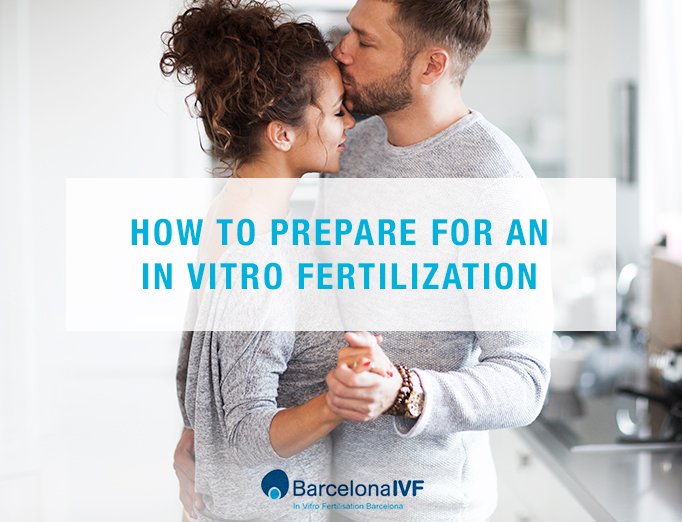
IVF involves four main steps: the induction of ovulation, the extraction of the ovule, fertilization and the transfer of the embryo. Before starting treatment it is important to be well informed concerning all of the steps and also to follow a series of recommendations in order to be prepared physically and mentally. This can increase the probability of the procedure achieving a higher rate of success. Below we review the fundamental tips to take into account to prepare for an in vitro fertilization.
Maintain a balanced diet:
Before starting an IVF treatment, special attention should be paid to the diet which means avoiding junk foods, sugars and trans fats and taking care with the intake of vitamins and minerals.
Try to adopt a diet which contains green leafy vegetables, fruit, vegetables, calcium and protein. Also opt for unrefined wholegrain carbohydrates such as wholewheat, oatmeal or rye bread. The refining process destroys a large amount of nutrients and lead to an increased blood insulin level.
Omega 3 fatty acids, especially DHA, EPA and DPA, are considered beneficial and can be found in fish. The ideal is to have two servings twice a week (340gms a week) to ensure a sufficient intake. It is advisable to opt for fish with a low mercury content such as prawns, shrimps, canned light tuna, trout, haddock or salmon. Another vegetarian option is to take flax seeds or supplements in capsules.
Supplementation with prenatal vitamins which provide folic acid, iron, calcium and vitamin B complex could also be indicated. It is important to take advice from a medical specialist, since hypervitaminosis induced by an excess must be avoided. It is also not a good idea to start a very restrictive diet with few calories or few carbohydrates, as this could endanger the success of the IVF treatment.
Practise exercise regularly:
Doing moderate exercise every day is another important recommendation. Being overweight or in poor physical condition can result in a lower probability of conception in an IVF cycle. Walking, practising yoga or doing other physical activity can be a great ally of fertility, as:
- Exercise improves blood circulation and oxygenation of body systems to a cellular level.
- Moderate physical activity is a great stress reducer.
- It improves the hormonal balance: regular exercise tones the muscles, helps regulate menstruation and reduces premenstrual symptoms.
- Recent studies have shown that immediately after physical exercise, the level of endorphins in the blood increases considerably. These are considered happiness hormones, natural analgesics that fight depression and anxiety.
Sleep well:
Maintaining a healthy sleep cycle is just as important as nutrition. Therefore it is important to sleep at least eight hours a day. To get a good night's rest we need to organize our sleep and do it responsibly. You should try to go to sleep at the same time each day and wake up at the same time, as far as this is possible. In order to do this, decide on a schedule and try to keep to it. Some mobile applications can help you with notifications which tell you it is time to go to bed. They can also calculate the actual hours you have slept each night and the quality of your sleep. Another tip is to try to sleep with the room completely dark, as this will improve the production of melatonin in your body. Melatonin is a hormone that is useful for the healthy development of follicles.
Relief of stress:
Stress is a factor which significantly influences the success of an IVF. Therefore it is important to try to avoid becoming stressed and to stay calm. Each negative thought produces in our body a chemical message which affects the immune system or the endocrine system. The latter system plays an important role in fertility. The inability to conceive after having tried for a while also often generates feelings of frustration, helplessness, failure and a sense of a lack of control of the situation.
Walking, doing yoga, mindfulness, reading or simply talking with our friends are some of the things that can help us relax.
To help in the whole process, at Barcelona IVF we have a team of psychologists who support patients from the beginning of treatment.
Trying to follow this nutrition and health advice for a minimum period of four to six weeks before the first IVF cycle can have a positive effect on the treatment.















